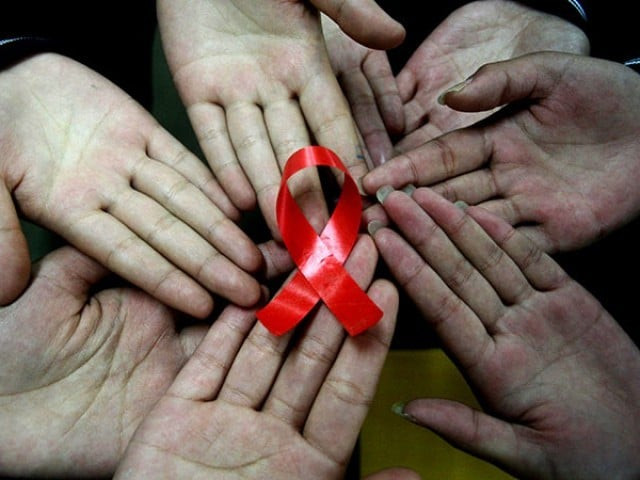Step in right direction: Rs58.4m approved for Aids control effort
The new plan is the need of the hour and is also needed to fulfill international commitments, says Dr. Achakzai

The new plan is the need of the hour and is also needed to fulfill international commitments, says Dr. Achakzai. PHOTO: AFP
The Departmental Development Working Party (DDWP) has approved the PC-1 of National AIDS Control Programme (NACP) worth Rs58.4 million for the year 2015-17.
This will be the first new plan of NACP after the devolution of the Ministry of Health (MoH) under the 18th Amendment and has been specifically devised for Islamabad Capital Territory (ICT), Federally Administered Tribal Areas (FATA), Azad Jammu and Kashmir (AJK) and Gilgit-Baltistan (GB). Earlier the NACP at federal level was just an extension of the previous programme.
According to the documents available with The Express Tribune, the new plan will be implemented from July this year and will focus more on coordination with the provinces and behavior change communication (BCC).
For this purpose a new position has been created for BCC specialist in the new plan, who will coordinate with the community, parliamentarians and other relevant people and departments.
Talking to The Express Tribune, National AIDS Control Programme (NACP) manager Dr Baseer Khan Achakzai said the new plan for the federal region was approved in a DDWP meeting which was chaired by the secretary health Sheikh Ayub.
He said this new plan was the need of the hour and it was also needed to fulfill international commitments.
Moreover the new plan will also help to finalize the first ever draft of the HIV and AIDS prevention and treatment bill for the capital which was approved by the National Assembly panel on January 21 this year, he said. A lot is needed to be done to fight the deadly disease, he stated.
He expressed concern over the absence of accurate data on the number of people living with HIV/AIDs in ICT, FATA, G-B and AJK.
Due to the stigma attached to this disease, people after being diagnosed with HIV usually hide their identity and mostly give inaccurate addresses, he said. Most of them come from villages but pretend to be residents of the capital.
Dr Achakzai said the new plan has been devised from the lesson learnt in the past and all efforts have been made to address those shortcomings.
Sharing a few of the challenges faced by the NACP, he said they include insufficient coverage of most at risk groups to have an impact in controlling HIV transmission in these populations, prevailing stigma and discrimination and hampering access to quality related services among others.
Published in The Express Tribune, April 23rd, 2015.



















COMMENTS
Comments are moderated and generally will be posted if they are on-topic and not abusive.
For more information, please see our Comments FAQ